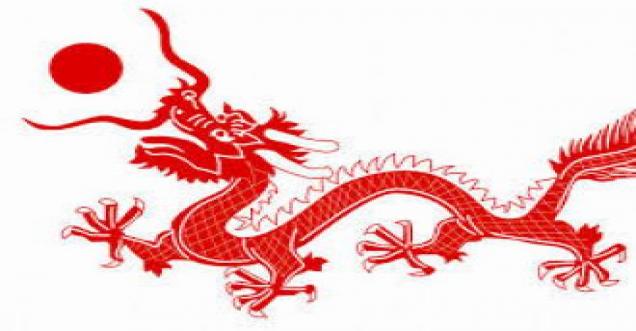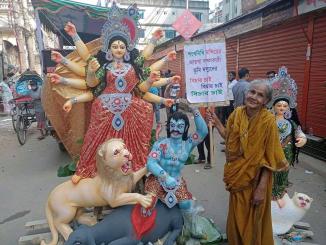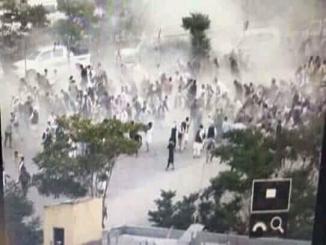
There is a joke on China policies about border disputes. It is said: 'When there is poverty, you should cooperate in development by keeping aside the dispute; and when you are rich, then claim those areas which you consider to be part of your rich history. This is exactly what is happening in china.
It is to be believed that China has dispute with almost all of the countries surrounding its border. However the reason behind this is not China's aggressive army, but there are many other reasons. Some of which we tell you in this article:
- In terms of area, China name comes after after Russia and Canada. But, china has most of the neighbors in the world (6 countries adjacent to the land and 6 along the sea border). It is well known with every one that how difficult it is to maintain healthy relation with all the neighbours in your surroundings. then leave aside the talk of countries with different political systems, ideologies, values and traditions.
- China has a long history compared to most of the world. It simply means that compared to the other countries, the dispute with the neighboring countries will be more in china. Especially with those small countries, who know about China’s ambitions of regional expansion or supremacy. Apart from this, China's Civil War also played an important role in removing the territorial disputes to some degree. And the coup of the Communist Party of China made the prospect of changing the government peacefully, impossible for the resultant historical documents lost.
- Why did China invade India in 1962? The main reason for this was not the absence of any foreign policies by CCP or PRC for settling regional disputes. This led to the promotion of these disputes. During Mao Zedong's reign, the CCP leaders, especially Mao, had very little knowledge of the boundaries and land, or since the establishment of the PRC, they failed to adopt integral ideas and philosophies on modern national states. As far as land and area disputes are concerned, the ideas that control their thinking were imported from the Chinese traditional central or late empire and the World Revolution of the USSR. The ruling Communist Party believes in Marxism, and therefore believed that after the world revolution, the state will no longer exist, the role of the boundary will become meaningless. And in view of these two guidelines the border dispute was not an issue. If a neighboring country believes in the same ideology of socialism or Left, then the issue of the disputed area will be sorted out. And if the neighboring country is like India, then it will have to take drastic steps in which the military will have to resort to.
When Deng Xaoping took over after Mao's death, he realized that after the political turmoil, the central empire had become very weak. That is why he advocated to 'hide his capabilities and wait for the right time' to promote the policy. From Deng's day, China has gained a lot and he succeeded in creating a peaceful atmosphere in the country. But by ending the disputes without ending it, the result turned upside down and it was difficult to rule over the country for a long time. With improvements in China's economy, deng xiaoping realized that suppression of years has to be eliminated. They used to adopt a close approach to the area but not only used to appeal to governments, beneficial, populist, nationalism and hypersensitivity. In this sense, Chinese diplomacy is only an expansion of domestic policies on regional disputes.
- Diplomacy was rarely the priority of the CCP due to the absence of a friendly foreign policy. The first generation of the CCP was politicians, generals or other revolutionary veterans, most of them had no prior training. Regardless of whether the latter CCP is knowledgeable of political foreign languages or is familiar with the protocol, most of these were first trained as translators. His full understanding of the art of diplomacy was needed only to resolve the disputes between the two countries.
In case of any major issue, the Minister of External Affairs had to seek advice from the Council of the State, who sent the report to the Cabinet in charge of diplomacy and to the counselor, Deputy Prime Minister. Deputy Prime Minister was also a member of Politburo. The Deputy Prime Minister used to report its report to the permanent members of the Central Diplomacy and Politburo at the same time. During this entire development, in addition to the Ministry, State Council and the Politburo, the Central Military Commission, the International Department of the CCP, Central Publicity Department and all other powerful organs played an active role in the international affairs of China. For this reason not only did their decision-making process become incompetent and tedious, but conflicting messages were also sent for it.
- Although China is one of the 5 permanent members of the United Nations Security Council, yet it does not resort to any international conference or arbitration tribunal for resolving disputes or intermediaries. Especially when it does not look strong enough to prove itself this reason, make the situation worse.
All this reasons makes China a lost country in its own and not having very well maintained relationship with its close neighbor, especially India.












.jpg)














